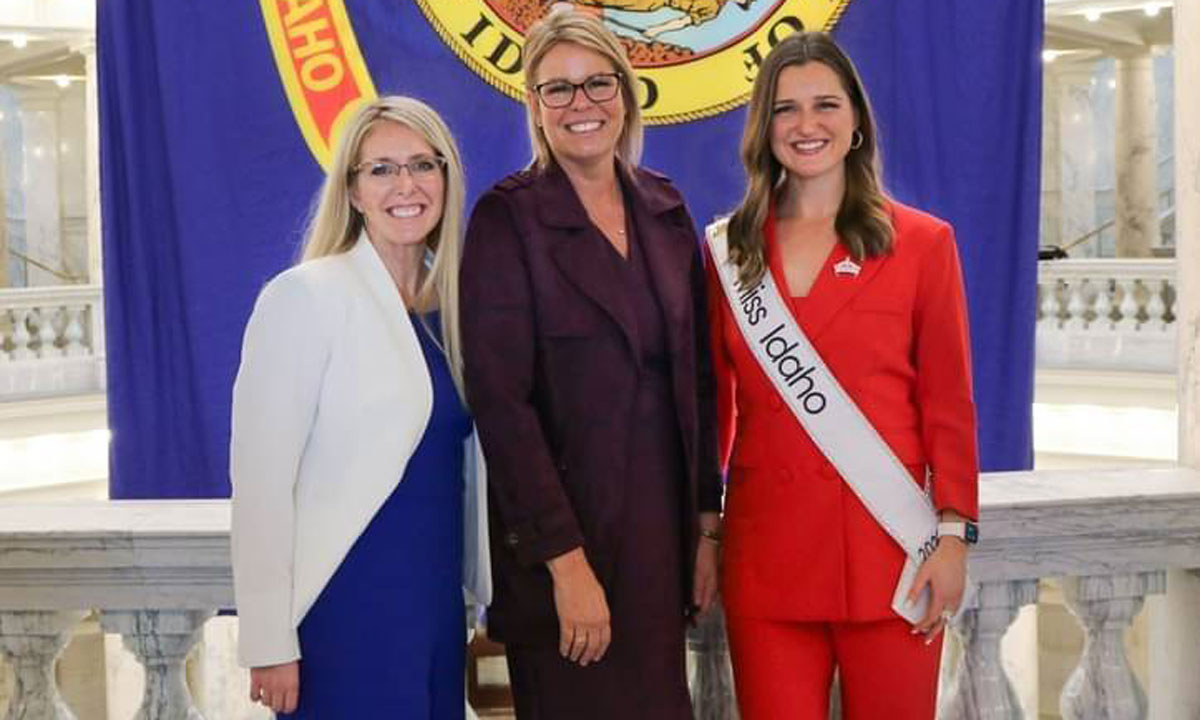
74 Interview: From Public Trust to Preparing Students for Future Careers, Idaho’s New Schools Chief Has a Plan to Change ‘Literally Everything’
Debbie Critchfield’s vision for K-12 education: Improved literacy, workforce preparedness, learning from ‘incredible’ charter schools & more
by Alan Gottlieb | This interview originally appeared in The 74
Debbie Critchfield was elected Idaho superintendent of public instruction in November, ousting two-term incumbent Sherri Ybarra, a fellow Republican whose tenure was widely panned as lax and ineffectual.
Critchfield has served on the Idaho State Board of Education for seven years, two of them as president. She also spent several years as a substitute teacher, and served on the rural Cassia County school board for 10 years.
Idaho, while a deep red state politically, is undergoing dramatic change as newcomers arrive in unprecedented numbers, many of them from the West Coast, where the political climate is decidedly different. This makes Idaho an interesting national case study, especially as a new state superintendent takes office, with strong ideas about strengthening her department’s support and oversight of school districts.
Under the Ybarra regime, districts reported receiving little of either support or oversight. As a result, they tended to ignore state mandates. Idaho EdNews assiduously tracked these departmental oversight failures, and districts’ flouting of state regulations.
During the former state chief’s tenure, districts failed to conduct meaningful teacher evaluations, and ignored the state’s transparency laws. Test scores stagnated, and Ybarra rarely engaged with state lawmakers.
Ybarra, who took a job as a kindergarten teacher earlier this month, defended her record during the campaign, saying she improved state graduation rates and college and career readiness.
Critchfield, who was sworn into her four-year term Jan. 6, is pledging a new day.
Idaho has long been a state where the concept of local control of public education is sacrosanct, where parental choice is seen as a top value and where public charter schools have proliferated and thrived.
How does Critchfield envision her new role, and the Idaho Department of Education’s place in the state’s education ecosystem? What lessons can Idaho teach the rest of the country? I recently interviewed Critchfield to get her perspective on these issues.
The conversation has been lightly edited for length and clarity.
The 74: What do you plan to change about how the State Department of Education operated under your predecessor?
Debbie Critchfield: Literally everything. The transparency piece is huge. And earning and deserving the respect and trust of our districts and our legislature. We have to reestablish trust around education. There are things that I believe need to happen immediately. The Department of Education is an agency designed to support schools. We need to demonstrate that we do provide that service. I’m looking at standing up some regional support centers around the state so that our folks in the most rural parts of the state and anywhere in the state aren’t dependent upon trying to contact someone in Boise.
What are some of the key issues you want to address early in your term?
I’m a big believer in the science of reading, and I believe that has been pushed to the side, and we in Idaho have not acknowledged sufficiently what it does for kids. You can expect to see that as a main point of conversation when we talk about literacy. Looking at our math scores, we’re no better than most states. I will want to work with our State Board of Education on a major math initiative. I’ve signaled to those folks that that’s a conversation that they can expect.
And then there is the workforce piece. We at the state, as well as local boards and districts, need to be initiating conversations with their community businesses and industries. One of the biggest services that we can do for our students is providing that connection — how what I’m learning in class translates to the outside world.
I talk to people in schools and districts frequently who are interested in having us help build these types of relationships and programs for their students. They’re not sure how to go about it. Fortunately, there are lots of models out there to draw from.
What made you decide to run for the state superintendent position?
Well, there were two things, actually. First, the COVID experience really highlighted the missed opportunities that Idaho didn’t move on. We had this interesting time in education where everything, all these state and federal laws, rules, requirements, etc. were waived. That created so many opportunities to try new things. But it felt like many of the educational leaders at the state level just kind of held their breath and then it was like, “Oh, OK, COVID’s over, let’s go back to business. Let’s go back to how things were.”
So that’s the first thing that motivated me. A frustration with the lack of vision, the lack of leadership. There was this tremendous opportunity to reimagine and create a system wrapped around what is most valuable for kids. Public education is in many ways still based on an 1850s model. There are some things that still work, and many that don’t. I felt frustration over the missed opportunity.
Second, I also felt frustrated with our lack of progress. We’re moving, but is it forward and is it towards the outcomes and the goals that we have for our kids? What are we preparing our kids to know and be able to do? Having been on the State Board of Education for the past eight years, I had a front row seat. And it became clear to me that I was doing as much as I could as an appointed volunteer. I needed to change roles to really advance some of the things that I heard from communities, parents, students and teachers.
–



